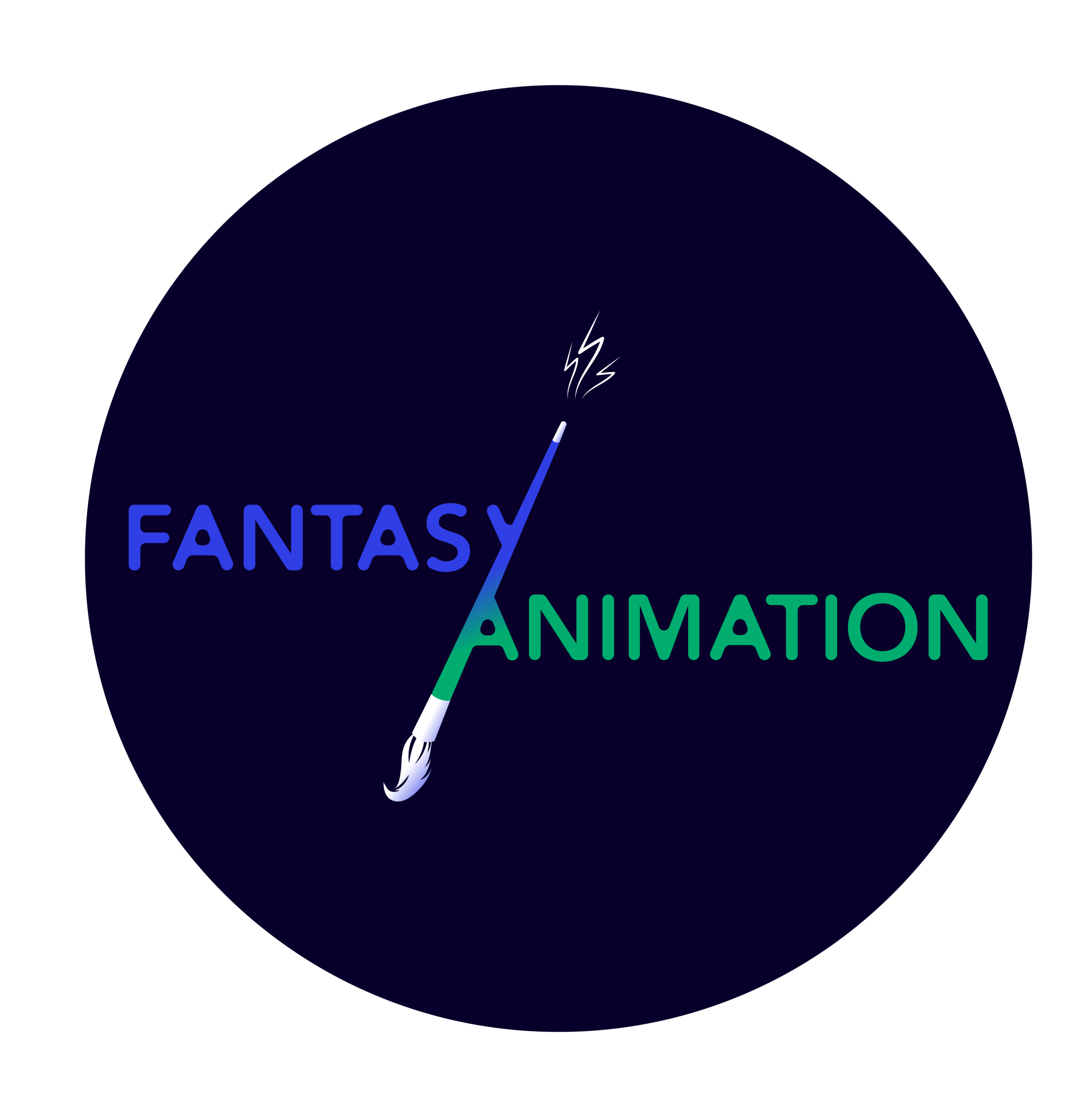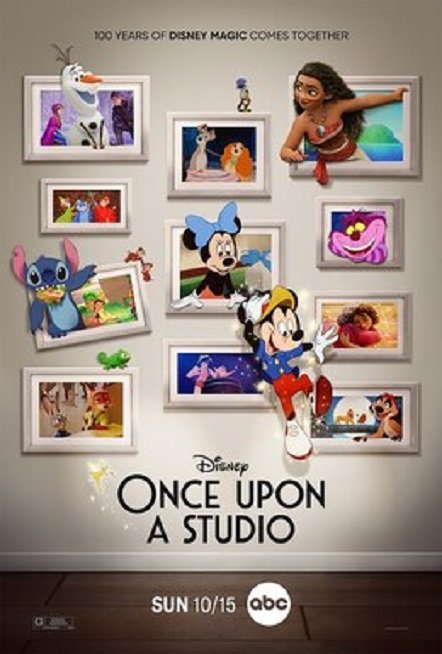Once upon a studio: why we are (still) talking about Disney
Hot on the heels of the return of CEO Bob Iger in November 2022 to replace Bob Chapek, the last 12-18 months have certainly seen some important milestones within the industrial, cultural, and technological history of the Walt Disney Company. In February 2023, a ghostly digital hologram of Walt Disney made its debut as the virtual host of the new Disney100: The Exhibition at the Franklin Institute in Philadelphia, greeting guests ‘live’ as they began their journey through the many gallery installations, artwork, props, and audiovisual displays housed in the 15,000-square-foot museum that collectively honoured 100 years of the corporation’s achievements. Preceded by a short animated prologue featuring Mickey Mouse taken from the character’s appearance in “The Sorcerer’s Apprentice” segment from the studio’s animated musical feature Fantasia (1940), a swirl of magic dust conjured the photorealistic digital avatar of Walt who proceeded to enthusiastically describe the Disney corporate ethos to those gathered at the museum, championing the studio’s ability to transform “ideas into reality” and celebrating the curiosity that fuels each new creative project (Fig. 1).[1] Later in the year, however, it wasn’t the future of Disney that was of primary concern but the past. The premiere of the intertextual extravaganza Once Upon a Studio (Dan Abraham & Trent Correy, 2023) in October - to again celebrate the company’s centenary (Fig. 2) - was quickly followed by the computer-animated musical Wish (Chris Buck & Fawn Veerasunthorn, 2023), a film whose plot and characterisations were very much cut from the ‘classical’ Mouse House template and intended to likewise herald Disney’s centennial through recourse to and revival of the studio’s enduring fantasy narratives. Finally, on January 1st this year and over 95 years since its original release, the history of the studio once again came starkly into view as the animated short Steamboat Willie (Walt Disney & Ub Iwerks, 1928) entered the public domain. With its copyright now expired, anyone can effectively use the particular silent-era design of Mickey from his screen debut, even if the character has, as Lee Savage’s 16mm underground animated short Mickey Mouse in Vietnam (1970) makes clear, always been rife for playful and provocative reinterpretation (see below). But as Variety’s Gene Maddaus (2024) reported only a few weeks’ ago and just a day after Steamboat Willie’s expiration, “get ready for “Steamboat Willie” horror films,” as he revealed that “indie horror producers are wasting no time in capitalizing on [the film’s lack of copyright]”.
It seems that a lot has happened behind and in front of the camera for Disney since Iger’s return (not least the many “PR and company debacles” that followed “the passage of Florida's "don't say gay" law” [Ogles 2022]). Yet it was the recent announcement of the 2024 Academy Awards nominations earlier this week - which caused a well-documented and bigger-than-Barbie-sized furore - that has further suggested the Disney Feature Animation unit remains at something of a crossroads. For the second year in a row, the Disney studio has no ‘in-house’ representation within the Academy Award category for Best Animated Feature (not counting, of course, its distribution links to Pixar Animation Studios’ Turning Red [Domee Shi, 2022] last year). However, since their nomination for Raya and the Last Dragon (Don Hall & Carlos López Estrada, 2021) and success that same year for Encanto (Jared Bush & Byron Howard, 2021) at the 2021 ceremony, the last two Disney feature Strange World (Don Hall, 2022) and Wish have marked something of a notable commercial and critical downturn.[2] Strange World did receive a theatrical release in late-November 2022, yet its low box-office gross (it ended its domestic run with only $37.9 million) and rapid release on Disney+ only a month later (where it was initially the most streamed film) has meant that the science-fiction adventure was, according to Jamie Lang, “Hollywood's biggest box office bomb of 2022, losing the studio nearly $200 million” (2023).
However, if Strange World’s unusual generic beats, progressive politics, and the global pandemic have all been invoked as rationale for putting audiences off buying a ticket (similar reasons were given for the underperformance of Pixar’s Lightyear [Angus MacLane, 2022] earlier that year), then the “lethargic” and “dispiriting” second weekend for Wish (Amidi 2023) has come of something of an even bigger surprise given its status as the kind of tentpole Disney animated feature that would normally be expected to trounce (or at least put up more of a spirited fight against) its big-screen competitors. Soon after Wish’s theatrical release in November, Forbes wrote that the film “failed to take off at the box office last weekend, adding a dismal theatrical opening to the film’s already poor reviews, making it Disney’s latest in a series of financial disappointments as the company struggles to bring audiences back to theaters” (Murray 2023). Its tough Thanksgiving weekend opening (collecting $19.7 million, only slightly more than Strange World’s $11.9 million opening) was not helped by several lukewarm critical responses to the film, leading in part to the lavish computer-animated Disney musical’s failure to garner a nomination for Best Animated Feature. Variety again noted that “Rather than nominate more high-profile animated features like Disney’s “Wish” or Netflix’s “Leo,” voters instead opted for the sci-fi comedy of “Nimona” (also from Netflix) and the Spanish-French “Robot Dreams.” Perhaps not a shocker to those in the know - both films are up for Annie Awards - they’re welcome inclusions in a strong year for animation” (Riley & Gilchrist, 2024). Indeed, alongside Nimona (Nick Bruno & Troy Quane, 2023) - a film actually cancelled when Disney acquired Blue Sky Studios in 2019 as part of its purchase of Twenty-First Century Fox, only to be resurrected a year later - and the Spanish-French Robot Dream (Pablo Berger, 2023), this year sees nods at the 96th awards for Hayao Miyazaki’s The Boy and the Heron (2023) (the director’s first feature since The Wind Rises in 2013, after which Miyazaki “retired”), Pixar’s Elemental (Peter Sohn, 2023) (a sleeper hit for the Disney-owned studio despite less-than-favourable reviews as to its conceit), and the Sony Pictures Animation sequel Spider-Man: Across the Spider-Verse (Joaquim Dos Santos, Kemp Powers & Justin K. Thompson, 2023), who are all vying for the coveted golden statue.
But back to Disney. As I noted elsewhere in a piece last year on the trials, errors, and periodisations of Disney, “it is ultimately too soon to plot the future of Disney Feature Animation” especially given Iger’s return but also the “continued expansion of Disney Plus as a streaming platform, and Hollywood’s broader industrial adjustment to the ‘post-pandemic’ period)” (Holliday 2023, 93). Yet even as I complete the final edits on this blog post, The Guardian has this morning published a piece titled “Bob Iger faces choppy seas amid second bid to steer Disney back on course,” which explores the many industrial factors that have contributed to Disney’s borderline “uncertain future,” from “lackluster trading at the box office to an expensive bid to dominate streaming” (Jones 2024). This is despite, as the article’s author Callum Jones notes, the company’s expansion and amassing of “Pixar, Marvel, Lucasfilm and most of 21st Century Fox” (2024) over the last 15 years. Closer to home, Wish’s slow start at the box-office may yet, of course, turn a corner thanks to an extended theatrical run (as was the case with Elemental), and in December the film finally passed the $100 million mark at the global box office after a moderate first few weeks. Furthermore, Disney’s theatrical struggles have been offset against admittedly stronger numbers for streaming in what has become a seemingly more acceptable metric for success, even if the “future relevance of cinemas remains an open question for the movie industry” (Jones 2024). With Wish’s arrival on Disney+ currently pencilled in for later in the year and time yet for the film to commercially bounce back after its recent Oscar snub, it is clear that we (still) need to keep talking about Disney even - and especially given the response by the Academy Awards - in the studio’s absence.
**Article published: January 26, 2024**
Notes
[1] This is not to mention The Metropolitan Museum of Art’s recent “Inspiring Walt Disney: The Animation of French Decorative Arts” exhibit that ran between December 2021 and March 2022 in New York before transferring to the Wallace Museum in London in April 2022, which “charted the influence of European visual culture (particularly French art and literature, but also tapestries and furniture) upon Disney’s animated films and the design of its theme parks” (Holliday 2023, 93 n1).
[2] Prior to Encanto, Disney’s last successes at the Academy Awards for one of its feature films was Frozen (Chris Buck & Jennifer Lee, 2013) in 2013, Big Hero 6 (Don Hall & Chris Williams, 2014) in 2014, and Zootopia (Byron Howard & Rich Moore, 2016), which triumphed in 2016.
References
Amidi, Amid. 2023. “Box Office Report: Dreamworks’ ‘Trolls’ Top Disney’s ‘Wish’ In Tight Box Office Race.” Cartoon Brew (December 4, 2023). Available at: https://www.cartoonbrew.com/box-office-report/box-office-report-dreamworks-trolls-top-disneys-wish-in-tight-box-office-race-235395.html.
Holliday, Christopher. 2023. “Walt’s Art History: Late Style, Digital Aesthetics and the ‘Disney Baroque’.” animation: an interdisciplinary journal 18, no. 1 (March): 78-95.
Jones, Callum. 2024. “Bob Iger faces choppy seas amid second bid to steer Disney back on course.” The Guardian (January 26, 2024). Available at: https://www.theguardian.com/film/2024/jan/26/disney-board-bob-iger-nelson-peltz.
Lang, Jamie. 2023. “Disney’s ‘Strange World’ Was 2022’s Biggest Box Office Flop, According To New Report.” Cartoon Brew (April 17, 2023). Available at: https://www.cartoonbrew.com/feature-film/strange-world-light-box-office-bombs-227881.html.
Murray, Conor. 2023. “‘Wish’ Had One Of Disney’s Worst Openings Ever For An Animated Movie—Here’s Why.” Forbes (November 27, 2023). Available at: https://www.forbes.com/sites/conormurray/2023/11/27/wish-is-one-of-disneys-worst-openings-ever-for-an-animated-movie-heres-why/.
Ogles, Jacob. 2022. “Disney Fires Bob Chapek, Rehires Bob Iger After 'Don't Say Gay' Mess,” Advocate (November 21, 2023). Available at: https://www.advocate.com/news/2022/11/21/disney-fires-bob-chapek-rehires-bob-iger-after-dont-say-gay-mess.
Riley, Jennelle and Todd Gilchrist. 2024. “Oscars Snubs and Surprises: Greta Gerwig Shut Out for Directing ‘Barbie,’ Margot Robbie and Charles Melton Out of Acting Races.” Variety (January 23, 2024). Available at: https://variety.com/2024/awards/awards/oscar-nominations-snubs-surprises-2024-greta-gerwig-1235882250/.
Biography
Christopher Holliday is Lecturer in Liberal Arts and Visual Cultures Education at King’s College London, where he teaches Film Studies and Liberal Arts and specializes in Hollywood cinema, animation history and contemporary digital media. He has published several book chapters and articles on digital technology and computer animation, including work in Animation Practice, Process & Production and animation: an interdisciplinary journal (where is also Associate Editor). He is the author of The Computer-Animated Film: Industry, Style and Genre (Edinburgh University Press, 2018), and co-editor of the collections Fantasy/Animation: Connections Between Media, Mediums and Genres (Routledge, 2018) and Snow White and the Seven Dwarfs: New Perspectives on Production, Reception, Legacy (Bloomsbury, 2021). Christopher is currently researching the relationship between identity politics and digital technologies in popular cinema, and co-editing two books: one on the multimedia performativity of animation (with Annabelle Honess Roe), and another (with David McGowan) on characters and aesthetics for the forthcoming Bloomsbury series The Encyclopedia of Animation Studies. He can also be found as the curator and creator of www.fantasy-animation.org.



